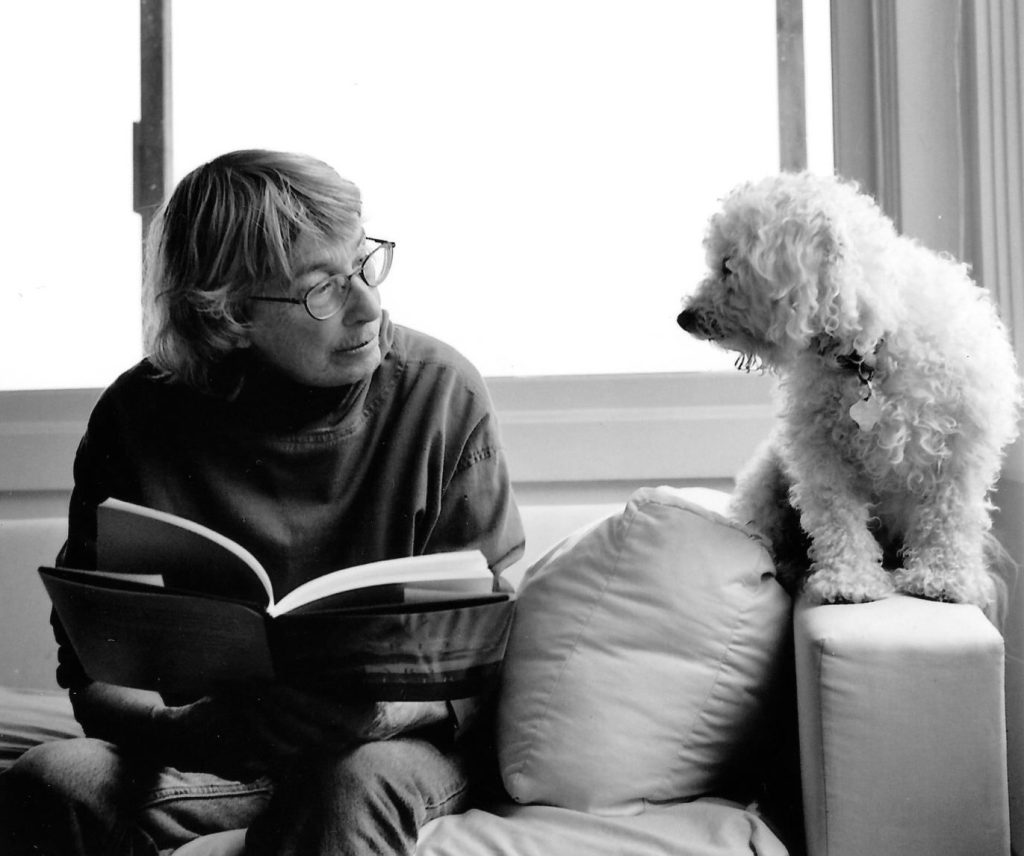Mary Oliver was an American poet who was born on
September 10, 1935 in Ohio and who died recently, on January 17, 2019. Mary started writing
poetry at the age of fourteen. She studied at Ohio State University and Vassar
College without completing a degree. Nature had always been her inspiration,
that is what she stated in the Christian Science Monitor in 1992:
I
don't know why I felt such an affinity with the natural world except that it
was available to me, that's the first thing. It was right there. And for
whatever reasons, I felt those first important connections, those first
experiences being made with the natural world rather than with the social
world.¹
Walking
in the woods was her absolute favourite thing. Her notebook and her pen were
always taken with her and when a thought came to her mind, she wrote it down.
Then she progressively entered more personal realms as her memories of Ohio and
New England. Her poetry was a new kind of Romanticism.
Her
first collection of poems is called No
Voyage and Other Poems was published when she was twenty-eight. Between
1963 and 2017 Mary published 33 collections of poems, A Poetry Handbook which is a guide to understand and to write
poetry, Rules for the
Dance: A Handbook for Writing and Reading Metrical Verse and two essays.
Even if Mary Oliver was a very famous writer in the Anglophone culture, only
one of her pieces of work was translated in Catalan in 2018 which is called Ocell Roig.
In
1970 she won her first award, which is the Shelley Memorial Award of the Poetry
Society of America. Only American poets considered as genius and essential
receive this award. Then between 1970 and 2012 she won twelve awards and honours;
one of those was the National Book Award for Poetry for New and Selected Poems, awarded to American
writers whose work was widely deemed brilliant. She was also reward with her
fifth collection, American Primitive,
with the Pulitzer Prize for poetry in 1984. In her career Mary Oliver taught at
several universities.
 The
New-York Times described Mary Oliver as the best-selling poet in the
United-States of America in 2007. In an article released on January 2017 by The
New-Yorker, she was considered to be the most appreciated poet in America as
well as a distinguished and important poet. In the beginning of her career,
critics did not believe in her because of her main poetry themes, considered as
old-fashioned. David Orr, a working poetry columnist for the New-York Times,
laughed at her because of her belief that poetry could work as self-help. Diane
Bond, who is a feminist writer, declared that:
The
New-York Times described Mary Oliver as the best-selling poet in the
United-States of America in 2007. In an article released on January 2017 by The
New-Yorker, she was considered to be the most appreciated poet in America as
well as a distinguished and important poet. In the beginning of her career,
critics did not believe in her because of her main poetry themes, considered as
old-fashioned. David Orr, a working poetry columnist for the New-York Times,
laughed at her because of her belief that poetry could work as self-help. Diane
Bond, who is a feminist writer, declared that:Few feminists have wholeheartedly appreciated Oliver's work, and though some critics have read her poems as revolutionary reconstructions of the female subject, others remain sceptical that identification with nature can empower women.²
However, numerous critics do appreciate her work, Alicia Ostriker is one of them. This American poet affirmed that Oliver “can describe and transmit ecstasy, while retaining a practical awareness of the world as one of predators and prey.”
Thanks to her poems Mary Oliver is
considered to be a brilliant writer who left her mark on the Anglophone poetry
world.
Lola Jensens, Elise
Schafer and Emilie Vilain.
No comments:
Post a Comment